Monkeypox
Windsor-Essex Pride Fest works to strengthen the sense of community and contribute to the vibrancy, health and overall well-being of 2SLGBTQIA+ individuals in Windsor-Essex. As we did with during the COVID-19 pandemic, the Windsor-Essex Pride Fest has had several meetings with the Windsor-Essex County Health Unit over the last several months so that we can provide up to date information regarding the Monkeypox outbreak and will continue to do so.
CURRENT MONKEYPOX #’S IN ONTARIO
Download information on current cases by the Public Health Unit in Ontario (PDF).
(As of July 25, 2022)
What is monkeypox
Monkeypox is an infection caused by the monkeypox virus. The monkeypox virus is closely related to the virus that causes smallpox.
What are the symptoms of monkeypox?
Monkeypox symptoms usually appear 6 to 13 days after being exposed to the virus, but can also range from 5 to 21 days. Infection usually has two phases:
- A prodromal (early) illness that lasts between 1 to 5 days, including:
- Fever
- Headache
- Muscle aches
- Swollen lymph nodes
- Backache
- Chills
- Exhaustion
- Sore throat and/or cough
- Runny nose
- A skin rash that begins 1 to 5 days after fever. The rash often begins on the face and then spreads to other places on the body, including the palms of the hands, soles of the feet, and mouth. The rash turns into blisters that then scab over.
How does monkeypox spread?
The monkeypox virus enters the body through breaks in the skin, or through the eyes, nose, and mouth.
The virus is spread by:
- Touching the sores, scabs, or body fluids of an infected person (including hugging, kissing, and sexual contact)
- Prolonged face-to-face contact with an infected person, such as an in-person conversation
- Touching objects that are contaminated with the virus, such as clothing or bedding
- Being bit/scratched by an infected animal, touching wild game meat, or using products made from infected animals
How long is it contagious?
Monkeypox is contagious when symptoms first appear and until all scabs from the sores have fallen off and new skin is present.
How is monkeypox treated?
If you have symptoms of monkeypox, you should talk to your health care provider right away to see if treatment is recommended. Most people do not need treatment for monkeypox, and symptoms will go away on their own within 2 to 4 weeks. For rare, severe cases of illness, the treatment used for smallpox may be used to treat monkeypox.
Monkeypox Vaccine
Currently, in Ontario, one dose of Imvamune® can be received as:
- Pre-Exposure Prophylaxis (PrEP) means receiving the vaccine prior to any monkeypox exposure (for those who are likely to be exposed).
- Post-Exposure Prophylaxis (PEP) means receiving the vaccine after potential exposure.
Currently, in Windsor-Essex, there are supplies of the 2) Post-Exposure Prophylaxis (PEP).
The Ministry of Health is strategically distributing the 1) Pre-Exposure Prophylaxis (PrEP) to those areas that have high infection rates first due to the limited quantity of does at this time. Further distribution of 1) Pre-Exposure Prophylaxis (PrEP) is currently underway.
If you think you have been exposed to monkeypox, contact your local public health unit to see if you may be eligible to receive the vaccine.
How is monkeypox prevented?
Anyone who has been exposed to a person infected with monkeypox should monitor themselves for symptoms for 21 days. A health care provider may give a smallpox vaccine to those who have had a high-risk exposure to monkeypox. Anyone with symptoms of monkeypox should isolate right away and contact a health care provider.
To reduce the risk of monkeypox infection:
- Practice good hand hygiene after contact with infected people or animals. This includes washing your hands with soap and water or using an alcohol-based hand rub.
- Use personal protective equipment (PPE) when caring for an infected person, including gloves, gown, eye protection, and respirator.
- Avoid contact with animals that could carry the virus (including animals that are sick or found dead in areas where there is monkeypox).
- Avoid direct contact with materials that have been in contact with an infected person or animal, such as bedding.
Monkeypox Vaccine & Eligibility
At this time, one dose of the monkeypox vaccine (Imvamune®) can be given to eligible persons as per the Ontario Ministry of Health guidelines. A single dose is expected to provide reasonable protection by 2-4 weeks following vaccination. A second dose produces a slightly higher response and may provide longer-lasting protection. Monitor for changes to the Ontario Ministry of Health recommendations and eligibility and register for a second dose if you become eligible.
Imvamune® can be used to protect individuals before exposure to the monkeypox virus (this is called Pre-Exposure Prophylaxis or PrEP) or to protect individuals after being exposed to the monkeypox virus (this is called Post-Exposure Prophylaxis or PEP).
Imvamune® vaccine eligibility for protection before an exposure to the monkeypox virus (PrEP)
Based on the Ontario Ministry of Health guidelines, trans- or cis-gender individuals who self-identify as belonging to the gay, bisexual and other men who have sex with men (gbMSM) community are eligible for pre-exposure prophylaxis if they meet one of the following criteria:
- Have had two or more sexual partners within the past 21 days or may be planning to.
- Have had anonymous/casual sex in the past 21 days or may be planning to.
- Have received a diagnosis of bacterial sexually transmitted infection (STI) in the past two months. Examples of bacterial STIs are chlamydia, gonorrhea, and syphilis.
- Have attended venues for sexual contact within the past 21 days, or may be planning to, or who work/volunteer in these settings. Examples of these settings include bathhouses or sex clubs.
- Engage in sex for work or may be planning to. Sexual contacts of these individuals are also eligible to receive the monkeypox vaccine.
Imvamune® vaccine eligibility after being exposed to the monkeypox virus (PEP)
Based on the Ontario Ministry of Health guidelines, individuals who have been identified by their local public health unit as having a high or intermediate-risk exposure with someone who has the monkeypox virus are eligible to receive Imvamune®. These individuals will be contacted directly by their local public health unit.
If you've been exposed
If you know you’ve been exposed to someone with a monkeypox infection, contact your local public health authority immediately. Your local public health authority may also tell you that you’ve been exposed to someone infected with the monkeypox virus. They will provide you with instructions on what to do and how to reduce the risk of further spread.
Instructions could vary depending on your exposure risk level, which may range from lower to higher risk.
In some instances, you may be instructed to:
- get tested for monkeypox infection
- contact your health care provider or a vaccination clinic for post-exposure vaccination, depending on the type of exposure
Watch for symptoms for 21 days after you’ve been exposed. Avoid taking medications that are known to lower fever, such as acetaminophen, ibuprofen and acetylsalicylic acid. They may mask an early symptom of monkeypox infection.
If you develop symptoms of monkeypox infection, isolate yourself immediately and contact your local public health authority or health care provider. Tell your health care provider that you’ve been exposed before an in-person appointment, when possible.
Continue to practise hand hygiene, respiratory etiquette and safe sex behaviours during your self-monitoring period.
Help reduce your overall risk of exposure to the monkeypox virus and common sexually transmitted infections by:
- reducing the number of sexual partners, particularly those who are anonymous
- using condoms and other safe sex practices
For more information, please contact the Windsor-Essex County Health Unit

Windsor Office
1005 Ouellette Avenue
Windsor, Ontario
Phone: 519-258-2146
Leamington Office
33 Princess Street
Leamington, Ontario
Phone: 519-326-5716
Additional Resources
